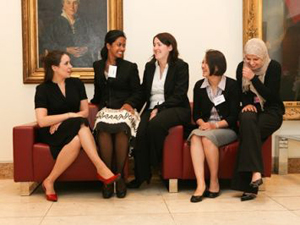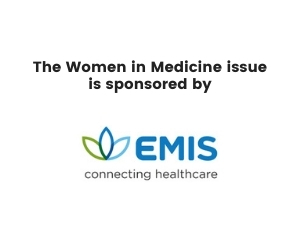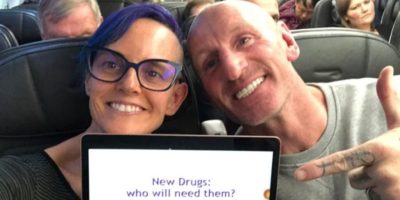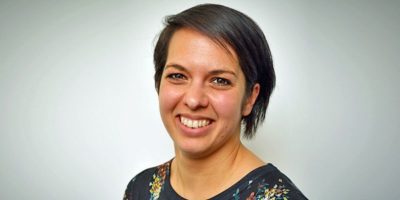Dr Heidi Mounsey is the honorary treasurer for the Medical Women’s Federation and a medicolegal consultant for Medical Protection, a medical defence organisation. Heidi used to be a palliative medicine registrar but changed her career in 2016. She also used to act as a tribunal member at the Medical Practitioners Tribunal Service.

“I was the first in my family to go to university, but my parents were very supportive, even if other family members were not. One elderly relative in particular considered that university was a waste of time and I should leave school, get married, have some babies and, by the way, stop wearing trousers because they made me look like a boy.”
Choosing my own path
I was educated at state schools and was taught by some excellent, if eccentric, science teachers who fuelled my initial interest in chemistry.
Never the most graceful child, it was reassuring to watch one of my chemistry teachers frequently trip over the fire bucket but you know, despite his seemingly poor co-ordination, he’d still managed to make a successful career (and retain all four limbs) out of handling potentially dangerous and toxic materials on an almost daily basis.
I was the first in my family to go to university, but my parents were very supportive, even if other family members were not. One elderly relative, in particular, considered that university was a waste of time and I should leave school, get married, have some babies and, by the way, stop wearing trousers because they made me look like a boy.
I ignored her and got my degree in chemistry (sustaining only minor burns from sulphuric acid in the process). As part of the course, I spent time in industry working on paper coatings and sunscreens, which was interesting but made me realise I wanted to carry on into postgraduate studies once I’d completed my final year.
From chemistry, to medicine, to consultancy
When I graduated, I started a PhD researching scaffolds for cell growth that could then be used in joint replacements, but I realised relatively early on that I wasn’t enjoying myself. Looking back, it’s difficult to say exactly why, although a contributing factor may have been that my equipment appeared to have been cobbled together in someone’s garden shed and there was no easy way to reproduce any of the experiments I was doing. In any event, I was miserable and I left, having agreed to write up my work to that point as an MRes [Master of Research].
I went travelling with friends for a few months, not quite knowing what I was going to do when I got home, but when someone told me that they thought I looked good in a white coat and I should be a doctor and make clever diagnoses(!), I decided that wasn’t the worst idea I’d ever heard. I applied for graduate entry medicine and took on a string of short-term (and sometimes terrible) jobs while the application process was ongoing, and I was pleased but surprised when I was successful, especially given most of my reasoning for “Why do you want to do medicine?” was “My mate thinks I’d be quite good at it”.
I loved my anaesthetic placements as a student and it seemed an excellent fit for me. I took my anaesthetic exams (which contain more physics than I consider reasonable, quite frankly) but ended up switching speciality to palliative medicine after a few years. From there, I developed an interest in medico-legal work, and applied for a role at the Medical Practitioners Tribunal Service (MPTS) before eventually leaving medicine completely to work for Medical Protection as a medicolegal consultant.
Acting as a tribunal member
I loved my time working for the MPTS. My role as an Interim Orders Tribunal member was a fantastic opportunity to use my analytical and communication skills, and to contribute to risk assessments that would keep patients and the public safe, while also ensuring that any restrictions placed on a doctor’s practice were necessary and proportionate.
It was this role that really whetted my appetite to take up full-time medicolegal work, and I think it stood me in very good stead for now being on the other side of the table, as it were.
Advising doctors and health care professionals
I manage a wide variety of cases ranging from providing general advice on medicolegal matters through to complaints, regulatory and disciplinary proceedings, inquests, and criminal investigations. In essence, I oversee the running of the case, work with the doctor or health care professional concerned, and instruct solicitors and barristers as needed for further representation.
No two days are the same
Every day can be different – on Monday I might review a statement for an inquest and provide advice to a clinician about appearing in front of the coroner to give evidence, and the next day I might be travelling across the country (or, in the current situation, attending remotely) to represent a doctor at a disciplinary hearing.
Wednesday might see me working with a legal colleague to prepare a response to allegations brought by the General Medical Council, and on Thursday I might be answering calls to our medicolegal advice line or writing an article for one of our publications, such as Practice Matters or Casebook. On Friday it may be that I deal with an urgent case – perhaps providing advice and arranging legal representation for a clinician about to be interviewed by the police.
I am acutely aware that for a number of these cases, especially disciplinary and regulatory matters, the career of the doctor may hang in the balance, and the process is extremely stressful for the clinician involved. Part of my role, therefore, is listening to their fears and concerns, and empathically supporting them through this time while maintaining objectivity about their case and the possible likely outcome.
Finding Medical Women’s Federation
I got involved with the Medical Women’s Federation (MWF) because a friend recommended it to me! At the time, MWF was looking for someone to help with the editing of their publication, Medical Woman, and I became involved via that.

I think being involved with MWF helped give me the confidence to apply for other roles, such as the medicolegal consultant position. There is a degree of informal mentoring that occurs within the organisation and at the conferences, and it is inspiring to be able to talk with other women doctors who are very successful in their fields, and who I wouldn’t ordinarily have had the opportunity to meet.
The future is uncertain
I don’t know what is coming up for me! I love my current role and I would like to become more involved in providing some of our educational material to health care professionals, so maybe writing and appearing on a podcast or two? We’ll see where life takes me next.
https://www.medicalwomensfederation.org.uk/
https://twitter.com/medicalwomenuk






